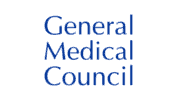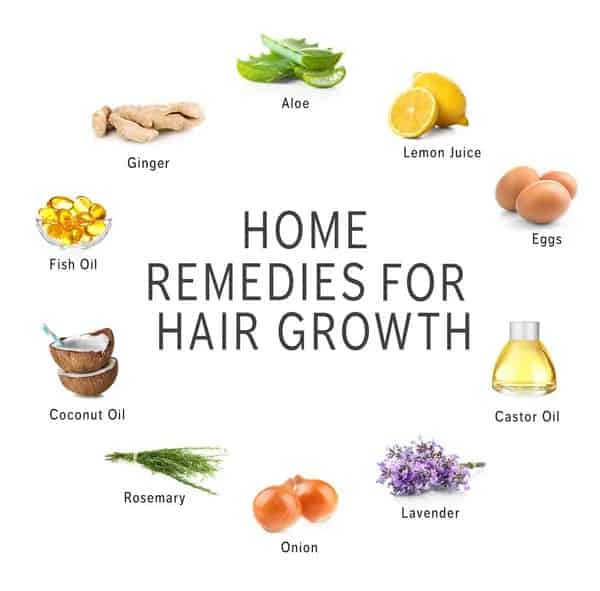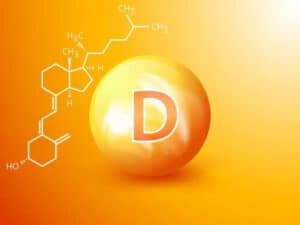So, you’re suffering with hair loss and looking to boost hair growth. Before you try any topical treatments or hair transplant surgeries, why not try some natural remedies for hair loss? Let’s cut through the old wives’ tales and take a look at the natural remedies for hair loss that are known to be effective at treating thinning hair. There’s nothing better than knowing your hair follicles are happy and healthy.
First Thing’s First: What is Hair Loss?
Before we talk about remedies for hair loss, it’s important to first understand why we lose hair in the first place. There’s little point in trialling random remedies, if you don’t know what type of hair loss you’re suffering with!
There are many different types of hair loss. Some conditions, like alopecia areata, only produce temporary balding, whilst other conditions do seem to cause permanent balding, like male pattern baldness (androgenetic alopecia).
Hair loss can also be put down to a number of different genetic and environmental causes. For more information on this, have a look at our article on different forms of alopecia.
Over the course of each day, we typically lose between 50 and 100 hairs. But a hair transplant surgeon, or doctor, would say someone is suffering with “hair loss” once they start losing more hair than their scalp can replenish.
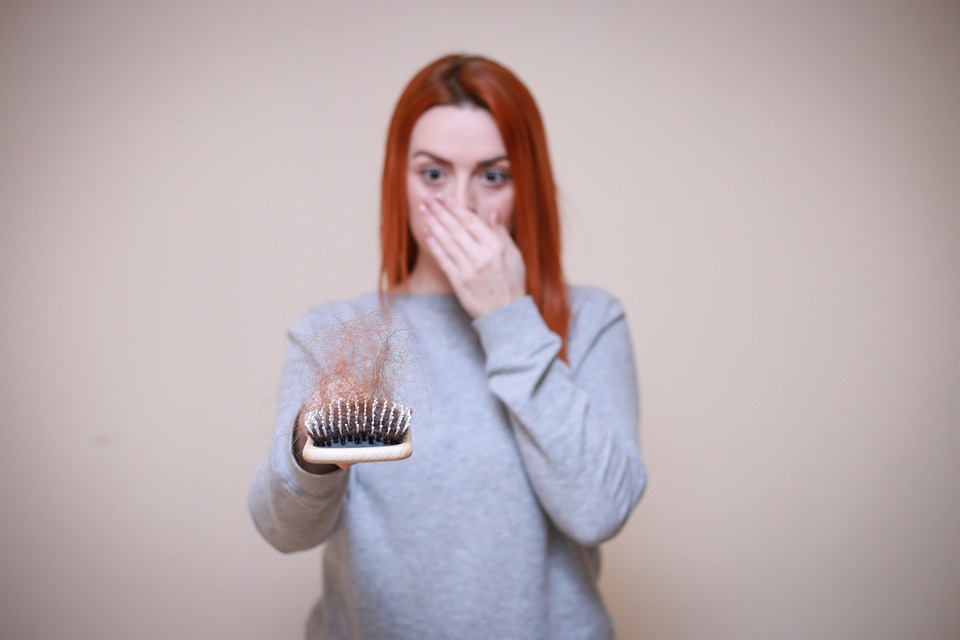
The physical process of hair loss occurs when the growth stage (anagen) of your hair follicles decreases and the resting stage (telogen) increases. This gives the effect of hair loss, or thinning hair, and this process is called Telogen Effluvium.
As well as pharmaceutical (Minoxidil and Finasteride) and medical treatments (such as hair transplants), there are a range of natural remedies and lifestyle changes you can employ to reverse the effects of some hair loss conditions.
However, if you’re suffering with androgenetic alopecia (male pattern baldness and female pattern baldness), you’re unlikely to promote any new hair growth in already bald areas. So, if you’ve got a receding hairline, few of these natural remedies for hair loss are likely to reverse your balding.
In cases of environmentally caused hair loss, these natural remedies may be more effective and, compared to pharmaceutical alternatives, MUCH cheaper! So, what’s the harm in trying?
Anyway, what vitamins, fatty acids, and nutrients do you need for healthy hair growth?
What Elements Does Your Hair Need to Thrive?
Like the rest of your body, your hair needs several different nutrients to remain happy and healthy. All of the natural remedies for hair loss you’re going to read about are high in some form of nutrient or fatty acid that your hair needs!
So, what elements are needed for healthy hair growth? To stimulate hair growth, you will need a healthy balance of the following elements:
Essential Oils & Fatty acids
Essential oils and Fatty Acids are absolutely critical to a healthy scalp. Any oil for hair is designed to penetrate the hair follicle and shaft, helping to produce healthy, shiny hair and encourage new hair growth.
With the right amount of essential oils, your hair should be:
- Stronger
- Less like to be affected by dandruff
- Condition your roots
- Prevent, or ease, an itchy or flake scalp.
A Good Balance of Vitamins and Minerals
Having the right levels of vitamins and nutrients in your body are essential for maintaining and growing healthy hair! Don’t believe us? Here’s what Almohanna et. al (2018) have to say about it:
Micronutrients are major elements in the normal hair follicle cycle, playing a role in cellular turnover, a frequent occurrence in the matrix cells in the follicle bulb that are rapidly dividing. Management of alopecia is an essential aspect of clinical dermatology given the prevalence of hair loss and its significant impact on patients’ quality of life. The role of nutrition and diet in treating hair loss represents a dynamic and growing area of inquiry.
So, what nutrients do you need for a healthy head of hair? Well, here are some of the most important vitamins and nutrients:
- Vitamin A
- Vitamin B
- Vitamin C
- Vitamin D
- Vitamin E
- Iron
- Selenium
- Zinc
If you think you may be going a little light on one of these nutrients, then either have a look at one of these natural remedies for hair loss, or invest in a high quality multi-vitamin. These seem like the best options. You may also want to read about which vitamin deficiency causes hair loss in order to know what to look out for when looking at buying multivitamins to address the issue.
Healthy Blood Circulation
The final element needed for healthy hair growth is a constant blood flow in your dermic layer (skin on your scalp). Healthy blood circulation is vital in maintaining your:
- hair follicles
- hair shaft
- scalp health (preventing scalp infections)
Without adequate blood circulation to your scalp, it doesn’t matter how much essential oil, nutrients, or vitamins you take. You’re simply not going to get them to your hair follicles. Think of blood flow as a motorway, or road system, to multiple destinations. If journeys are hindered, then less hair growth is going to be able to take place.
What are the Best Natural Remedies for Hair Growth?
Have a look below at some of the best natural remedies for hair loss!
Coconut Oil

Think you’re suffering with Vitamin E related hair loss? Then, coconut oil would be a great remedy! If you’re suffering with symptoms such as an itchy scalp, split ends, or thinning hair, then using a tablespoon of this (massaged into your hair) as a nighttime topical treatment may do wonders for your hair loss!
This natural remedy if full of vitamin E, fatty acids, and anti-oxidants. So, in order to promote hair growth coconut oil treatment will work as a natural hair mask. It should help to rehydrate your scalp and strengthen your hair follicles.
Rosemary Oil
Rosemary oil is quickly becoming a popular natural treatment for hair loss. If you’re considering this, purchase it as a distilled essential oil from any of your local healthcare shops on the high street.

Once daily, use rosemary as a topical treatment. Apply 4-5 drops of this onto your scalp and massage into your hair. Let the oil soak into your hair and then rinse out after 10 minutes.
You could also mix a few drops of rosemary oil into any mild shampoo. This can help to promote new hair growth.
Rosemary oil has been known to sooth itchy and infected scalps, reducing further irritation through rubbing and itching. It may will be that with less irritation in the scalp, this helps to control hair fall and, thus, encourage new hair growth.
A small amount of clinical research has also been conducted on rosemary oil, making it one of the more reputable natural remedies for hair loss. One clinical study found rosemary oil to even be effective in managing symptoms of Alopecia Areata (Harries et. al, 2010).
Olive Oil
Did you know that for almost 3,000 years, olive oil has been one of the most popular natural remedies for hair loss? Even today, olive oil is a prominent ingredient that you’ll find on many many mild shampoo and conditioners.
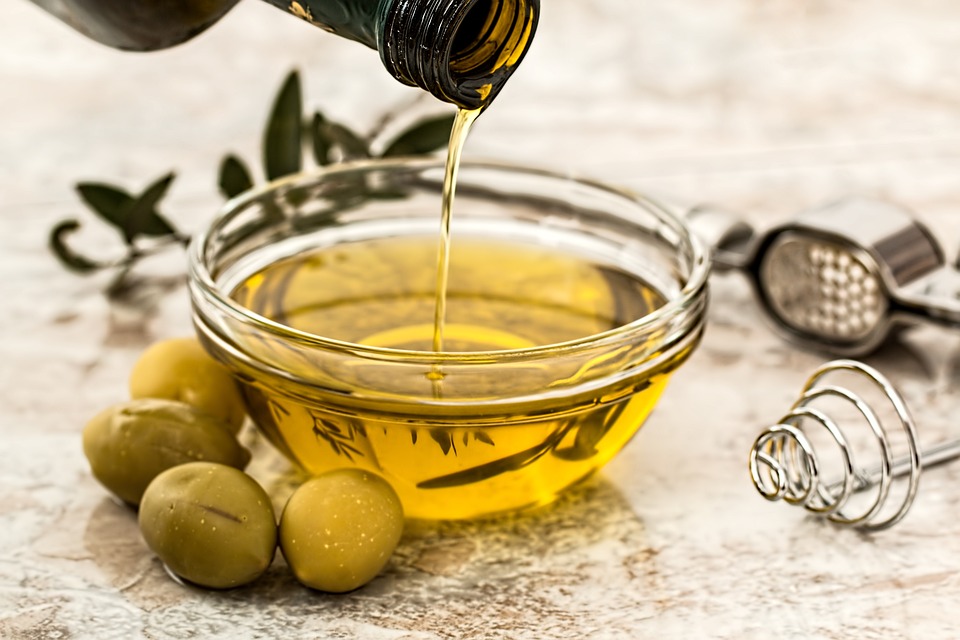
As Olive oil is high in fatty acids and has high anti fungal properties, it has been vital in maintaining healthy hair since the Greek and Roman times!
If you’re suffering with dry skin, split ends, or an itchy scalp, then olive oil may help to alleviate these symptoms and dramatically reduce your chances of hair loss.
Whilst this natural remedy for hair loss certainly won’t help to regrow hair in bald areas (a key sign of pattern baldness), it’ll do a great job at maintaining hair density and the health of your hair follicles.
To treat, pour a small amount (10ml or so) into a dish or ramekin. Then, massage this treatment into your hair, before washing it out after 15-20 minutes.
Pumpkin Seed Oil
If you have some pumpkin innards leftover at Halloween, you can use the seeds as a natural remedy for hair loss. Pumpkin seed oil, generally sold in most healthcare shops, has been reported to block the formation of DHT, the hormone responsible for male pattern baldness!

As well as slowing signs of male pattern baldness, pumpkin seed oil also delivers vital nutrients to the scalp and stimulates your hair follicles. This helps to reduce hair thinning and hair shedding.
There are two ways you can take pumpkin seed oil: through ingestion (generally, cheaper), or topical treatment (often vastly more expensive). If you’re wanting to promote natural hair growth, then this natural remedy for hair loss is definitely a great place to start!
Onion Juice
Believe it or not, onion juice has shown some promising signs of reducing signs of hair loss in some people. For decades, it has also been used as a home treatment for dandruff and anti-greying!

As onions are naturally high in sulphur (a compound containing amino acids), this can help in increasing hair density, hair growth, and even regeneration.
In one clinical study (Sharique et. al 2002), results showed those who used onion juice as a treatment had increased signs of hair growth when compared to those using water. If you’re wanting a clinically proven treatment, then onion juice may well be the way to go.
This might be a bit of a smelly one though! If you’re thinking of trialling onion juice, definitely do it before bed, use an old (or cheap) pillowcase you won’t mind getting ruined, and be sure to have a shower in the morning before you go to work. Simply, rub the onion juice into your scalp and let it do its magic!
Sunflower Oil
Believe it or not, the sunflower oil we sometimes use to cook our chips can help to prevent signs of hair loss. Sunflower oil is packed with oleic acid, a powerful anti-inflammatory that can help to prevent hair breakage, reduce signs of thinning hair, and even curb the progress of male pattern baldness.

With a little bit of extra help from some sunflower oil, you may be promoting new hair growth. Sometimes, all your hair follicles need is a healthy scalp that is not dry or infection prone!
If you’re considering this to stimulate hair growth, you’ll want a high quality oil from a respectable health care shop on the high street. Generally, the more you pay for a sunflower oil, the more effective it’s likely to be. Then, simply follow the instructions on your bottle/label.
Green Tea
Available as a dietary supplement or through the brewing method, green tea has actually been shown to reduce the effects of hair loss! Green tea is generally regarded as a powerful anti-inflammatory and a great anti fungal natural medication.

If you’re looking for a medication that’s going to reduce scalp infections and inflammations, then you’re not going to find a better natural remedy than green tea. As has been stated earlier, if you’re looking to increase hair growth, one of the best places to start is with a high quality scalp treatment.
Green tea has also been shown to have high catechin levels, an anti-oxidant that reverses the effects of DHT related hair loss.
Simply take this as a dietary supplement, and see the results for yourself. It’s really up to you how you treat hair loss!
Jojoba Oil
Most commonly used in moisturisers, did you know that jojoba oil can also be used for hair loss as well? Jojoba oil is naturally high in Vitamins B, C, and E, as well as copper and zinc; nutrients essential for healthy hair growth!
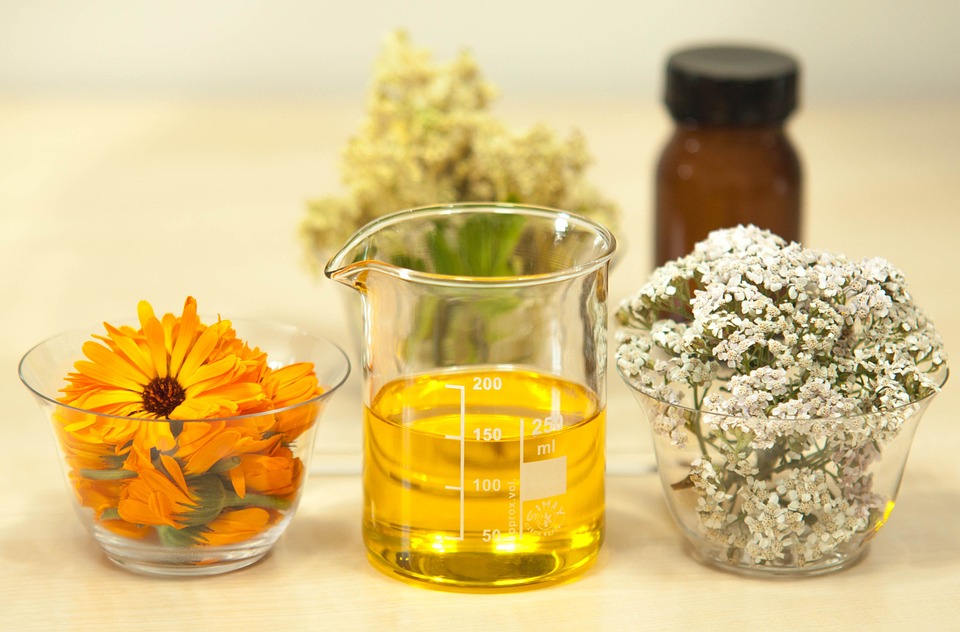
Jojoba oil works in a similar way to many conditioners on the market. It will help to repair damaged hair, making it healthier in the future. Most apply a few drops of jojoba oil onto the scalp directly, rubbing it inn before washing it off in the shower after 15-20 minutes.
Although the scientific literature on this natural remedy is particularly sparse, there is little to no risk in taking this product as a hair loss medication. So, whilst it may not be particularly effective at treating hair loss, there’s no harm in using it as a supplement in your routine.


